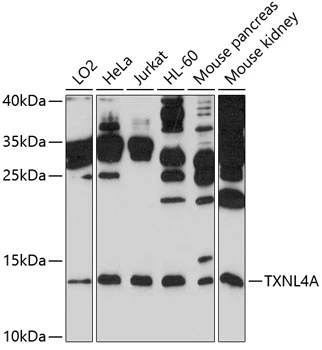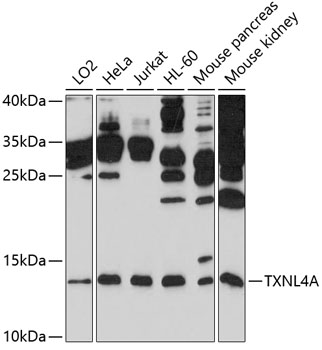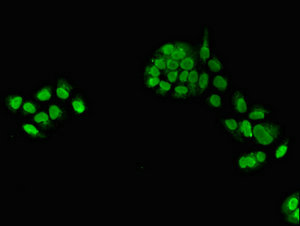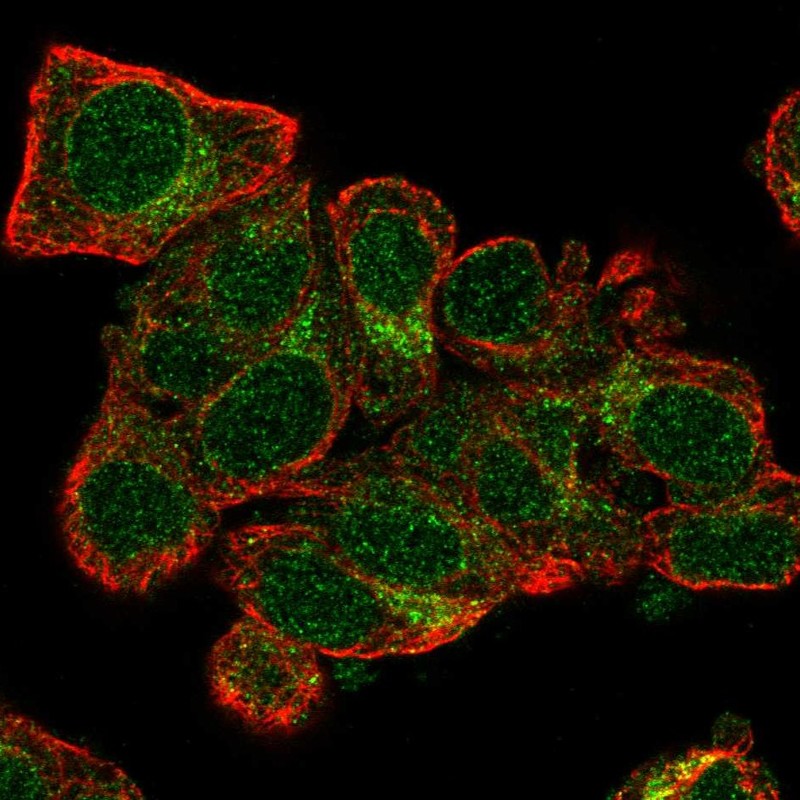
WB analysis of various sample lysates using GTX64992 TXNL4A antibody. Dilution : 1:1000 Loading : 25μg per lane
TXNL4A antibody
GTX64992
ApplicationsWestern Blot
Product group Antibodies
ReactivityHuman, Mouse
TargetTXNL4A
Overview
- SupplierGeneTex
- Product NameTXNL4A antibody
- Delivery Days Customer9
- Application Supplier NoteWB: 1:500 - 1:2000. *Optimal dilutions/concentrations should be determined by the researcher.Not tested in other applications.
- ApplicationsWestern Blot
- CertificationResearch Use Only
- ClonalityPolyclonal
- ConjugateUnconjugated
- Gene ID10907
- Target nameTXNL4A
- Target descriptionthioredoxin like 4A
- Target synonymsBMKS, DIB1, DIM1, SNRNP15, TXNL4, U5-15kD, thioredoxin-like protein 4A, DIM1 protein homolog, spliceosomal U5 snRNP-specific 15 kDa protein, thioredoxin-like 4, thioredoxin-like U5 snRNP protein U5-15kD
- HostRabbit
- IsotypeIgG
- Protein IDP83876
- Protein NameThioredoxin-like protein 4A
- Scientific DescriptionThe protein encoded by this gene is a member of the U5 small ribonucleoprotein particle (snRNP), and is involved in pre-mRNA splicing. This protein contains a thioredoxin-like fold and it is expected to interact with multiple proteins. Protein-protein interactions have been observed with the polyglutamine tract-binding protein 1 (PQBP1). Mutations in both the coding region and promoter region of this gene have been associated with Burn-McKeown syndrome, which is a rare disorder characterized by craniofacial dysmorphisms, cardiac defects, hearing loss, and bilateral choanal atresia. A pseudogene of this gene is found on chromosome 2. Alternative splicing results in multiple transcript variants. [provided by RefSeq, Mar 2015]
- ReactivityHuman, Mouse
- Storage Instruction-20°C or -80°C,2°C to 8°C
- UNSPSC41116161





